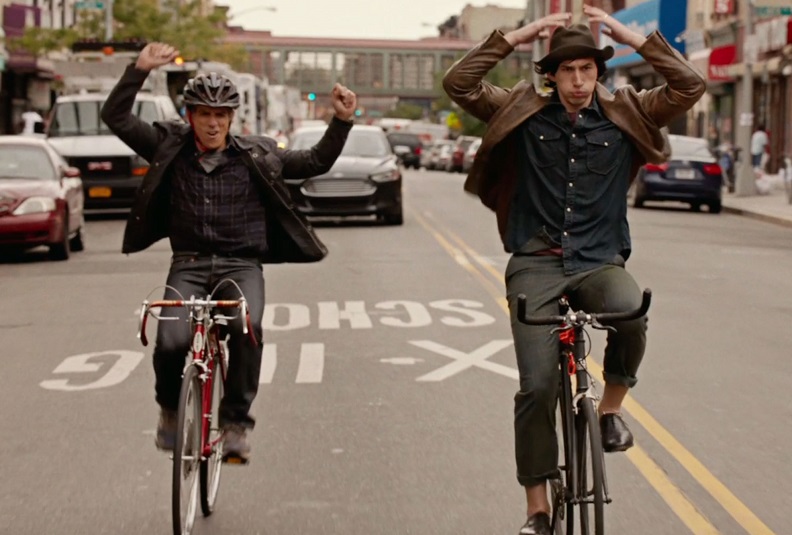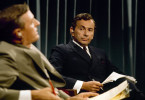While We’re Young
Director: Noah Baumbach
(iTunes)
B
The fear of youth is just as prevalent as the anxiety of aging. The quest for substance in a world full of everything almost seems moot. Instead, we huddle around a mountain of records, VHS tapes, and retro video games hoping that nostalgic warmth will be enough to ignite a creative flame. It usually works, but not as we intend. Noah Baumbach’s While We’re Young looks closely at the generational gap, building a bridge across it that, though nice to look at, is too unsound to actually walk across.
Appropriately prefaced by an excerpt from The Master Builder, Henrik Ibsen’s 19th-century play, the film follows Josh (Ben Stiller) and Cornelia (Naomi Watts), a childless couple in their 40s who find themselves disconnected to their similarly-aged friends. A lack of children gives Josh and Cornelia more time to do what they want. Josh, a documentarian, uses it to work futilely on his latest project, which is over a decade in the making. At one of his lectures, Josh befriends newlyweds Jamie (Adam Driver) and Darby (Amanda Seyfried). Josh and Cornelia grow fascinated with Jamie and Darby’s ability to live off of, create from, and breathe life back into the junk Josh and Cornelia once cast aside. Their friendship escalates, and Josh pushes his project back in favor of Jamie’s, which is quirkier and simpler.
Like he does in many of his films, Baumbach assumes the writing helm of While We’re Young, giving it an organic, autobiographical, and self-deprecating flavor. Baumbach occasionally enters vaguely conservative territory, but he acknowledges the antiquated and, frankly, boring tendency to belittle youth in a way not far from something like TV’s Louie. Stiller and Watts run circles around the younger performers, often seeming visibly distraught in contrast to Driver and Seyfried’s more lax approach. But they remain at the heart of the work, and their self-conscious, hilarious back-and-forths give a more humble edge akin to Ethan Hawke and Julie Delpy in the Before trilogy.
While We’re Young does lull at times, like Josh’s six and a half hour “opus.” It doesn’t always flesh itself out until it works double-time in the final movement. It’s as if the argument is set within the first half-hour, leaving us to consume the older couple’s bout with fedoras and hip-hop body-pumps until it finally recuperates. It’s more tangential than boring, which likely was Baumbach’s intention. It’s ultimately a story of acceptance and generational celebration, and fortunately isn’t some somber reflection of enduring body failure until we stop feeling. Rather than reconciling why a wizened novelist can’t wield a smartphone as aptly as a toddler, While We’re Young encourages us to just live.





